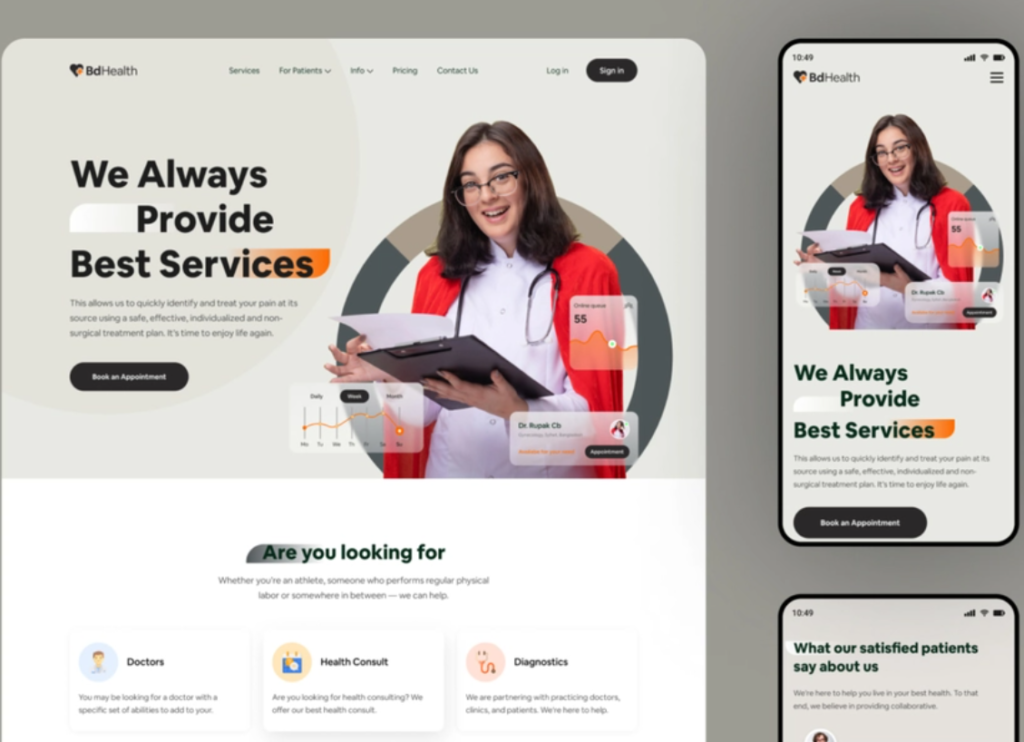Rise by Six: Your Daily Dose of Inspiration
Explore insights and stories that elevate your day.
Responsive Web Design: Why Your Site Might Be on Life Support
Is your website struggling to keep up? Discover why responsive web design is crucial for survival and how to revive your online presence!
The Consequences of Ignoring Responsive Web Design
Ignoring responsive web design can lead to a multitude of consequences that can adversely affect your website's performance and user experience. First and foremost, a non-responsive site will struggle to provide an optimal viewing experience across various devices, particularly mobile phones and tablets. This could result in increased bounce rates, as users become frustrated with the inability to navigate your content easily. In fact, studies show that mobile users are less likely to return to a website that is not optimized for their device, leading to lost opportunities for engagement and conversions.
Additionally, neglecting responsive web design can have detrimental effects on your site's search engine rankings. Search engines like Google prioritize mobile-friendly websites, meaning that a non-responsive design could diminish your visibility in search results. In today’s digital landscape, where competition for attention is fierce, investing in responsive web design is crucial for maintaining your site's relevance and accessibility. Ultimately, failing to adapt could mean losing your audience to competitors who prioritize a seamless experience across all devices.

5 Signs Your Website Needs a Responsive Redesign
In today's digital landscape, responsive design is more crucial than ever. If your website fails to adapt effectively across various devices, it's a clear sign that a redesign is in order. Here are 5 signs indicating that your website needs a responsive redesign:
- Poor Navigation: If users struggle to find information or navigate your site on mobile devices, it's time to rethink your design.
- Slow Load Times: A website that takes too long to load can deter visitors, particularly on smartphones.
- High Bounce Rate: If analytics show that users leave your site quickly, it may be due to a lack of mobile optimization.
- Inconsistent User Experience: If the user experience varies dramatically between desktop and mobile, it's essential to create a more cohesive design.
- Outdated Aesthetic: If your site looks outdated on mobile devices, a modern redesign could enhance its appeal and usability.
How Responsive Design Can Save Your Site from Extinction
In today's digital landscape, responsive design has become a crucial aspect of web development, ensuring that websites are accessible and user-friendly across a multitude of devices. With the increasing use of smartphones and tablets, a website that fails to adapt to different screen sizes risks alienating a significant portion of its audience. In fact, statistics show that over 50% of web traffic now comes from mobile devices. By implementing responsive design, you not only enhance the user experience, but you also boost your site's search engine rankings, as search engines like Google prioritize mobile-friendly sites in their results.
Moreover, adopting a responsive design strategy can lead to improved conversion rates and increased engagement. When users can easily navigate your site without having to zoom in or scroll horizontally, they are more likely to stay longer and interact with your content. This increased engagement signals to search engines that your site is valuable, further enhancing its visibility. In a time when online competition is fierce, responsive design is not just a nice-to-have; it is essential for survival. Without it, your site risks extinction in an ever-evolving digital ecosystem.